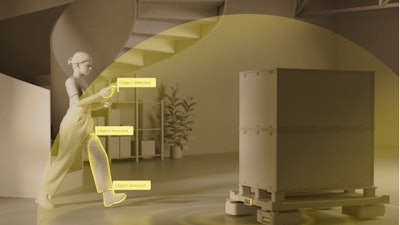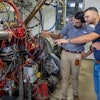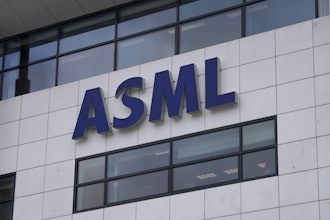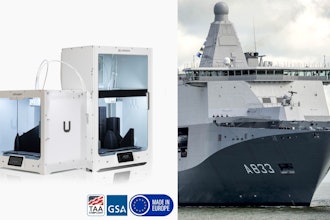
Sonair, a developer of advanced sensing technology, announced it will ship ADAR (acoustic detection and ranging) to manufacturers in Asia, Europe and North America.
ADAR features a sensor that uses sound waves in air to give robots a precise, real-time 3D view of their surroundings, helping them operate safely in shared spaces.
Sonair is also safety-certifying to PLd ISO13849 / SIL IEC 61508.
To meet rising, global demand, Sonair has raised $6 million from a group of existing and new international investors, including Copenhagen-based VC Scale Capital and Norway’s state-backed Investinor. The round saw continued support from RunwayFBU (part of the Aker group), SINTEF and ProVenture.
With this strengthened shareholder base, Sonair announced that it has the capital backing to drive its global rollout and long-term growth.
 Sonair
Sonair
“For robots to operate alongside humans, safety has to be built in from the start,” Sonair CEO and Co-Founder Knut Sandven said. “ADAR gives manufacturers a straightforward and more affordable way to achieve that.”
Sonair’s patented ultrasound technology provides precise 3D perception at a fraction of LiDAR’s cost. After testing with over 30 global companies, it now targets autonomous mobile robots in logistics and manufacturing.
Increased warehouse automation, labor shortages and new safety regulations are accelerating demand for technologies that enable people and robots to work side-by-side. In the U.S. alone, warehouse workers reported 4.7 injuries per 100 full-time employees in 2023, nearly double the private industry average.
ADAR’s combination of safe 3D object detection, full vertical views and low computational requirements enables safer robot movement, reducing risk without adding complexity or cost to the machine.
One of Sonair’s customers, Fuji Corporation in Japan, is building autonomous robots for retail environments.
“Through comprehensive testing we were able to confirm the high suitability of their sensors for autonomous mobile robots,” said Koji Kawaguchi, General Manager of the Innovation Promotion Department at Fuji.
Another reference customer, based in Europe, builds cleaning robots for commercial buildings. In both cases, safety is a top requirement because the robots will operate around humans.
Investors point to the company’s rapid progress from a portfolio of patents to commercial shipments.
"Sonair makes robot safety simple,” Scale Capital Investment Manager Terkel Douglas said. "As robots become more common-place in our daily lives, safety becomes critical. By pushing the technical limits of sensing technology, Sonair has moved the robotics world several steps forward in a safe and cost-effective way."






















